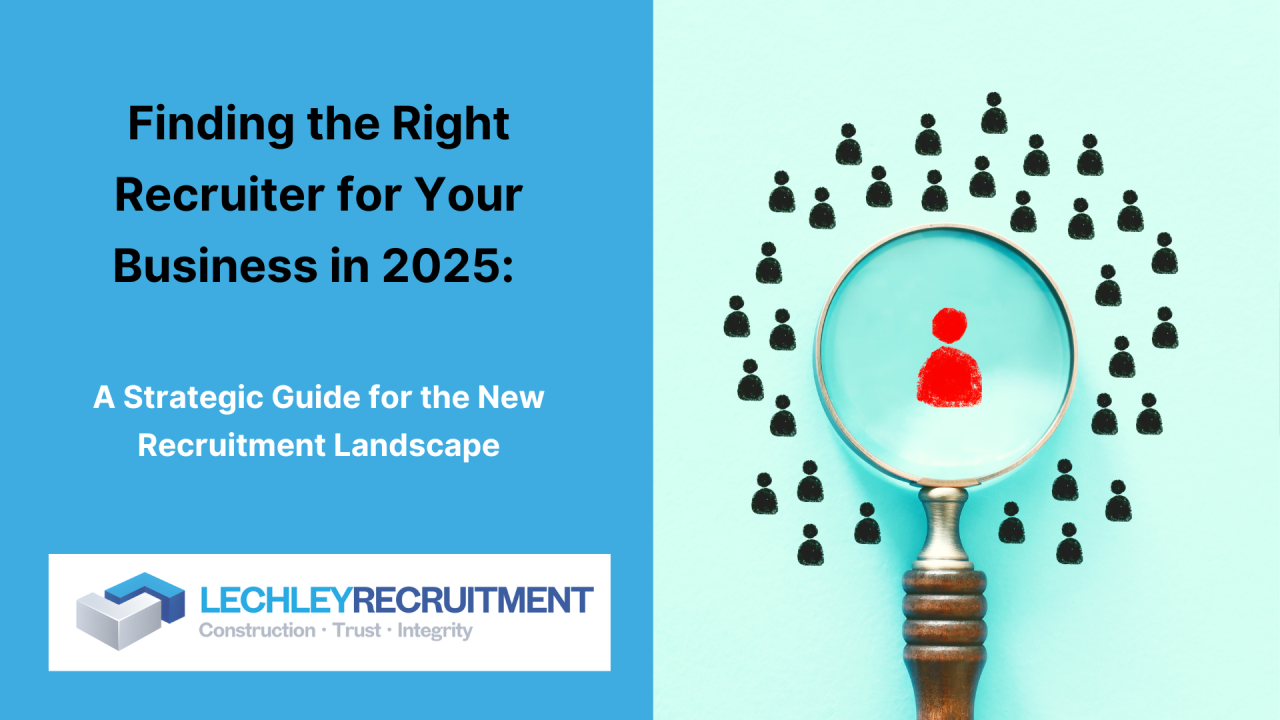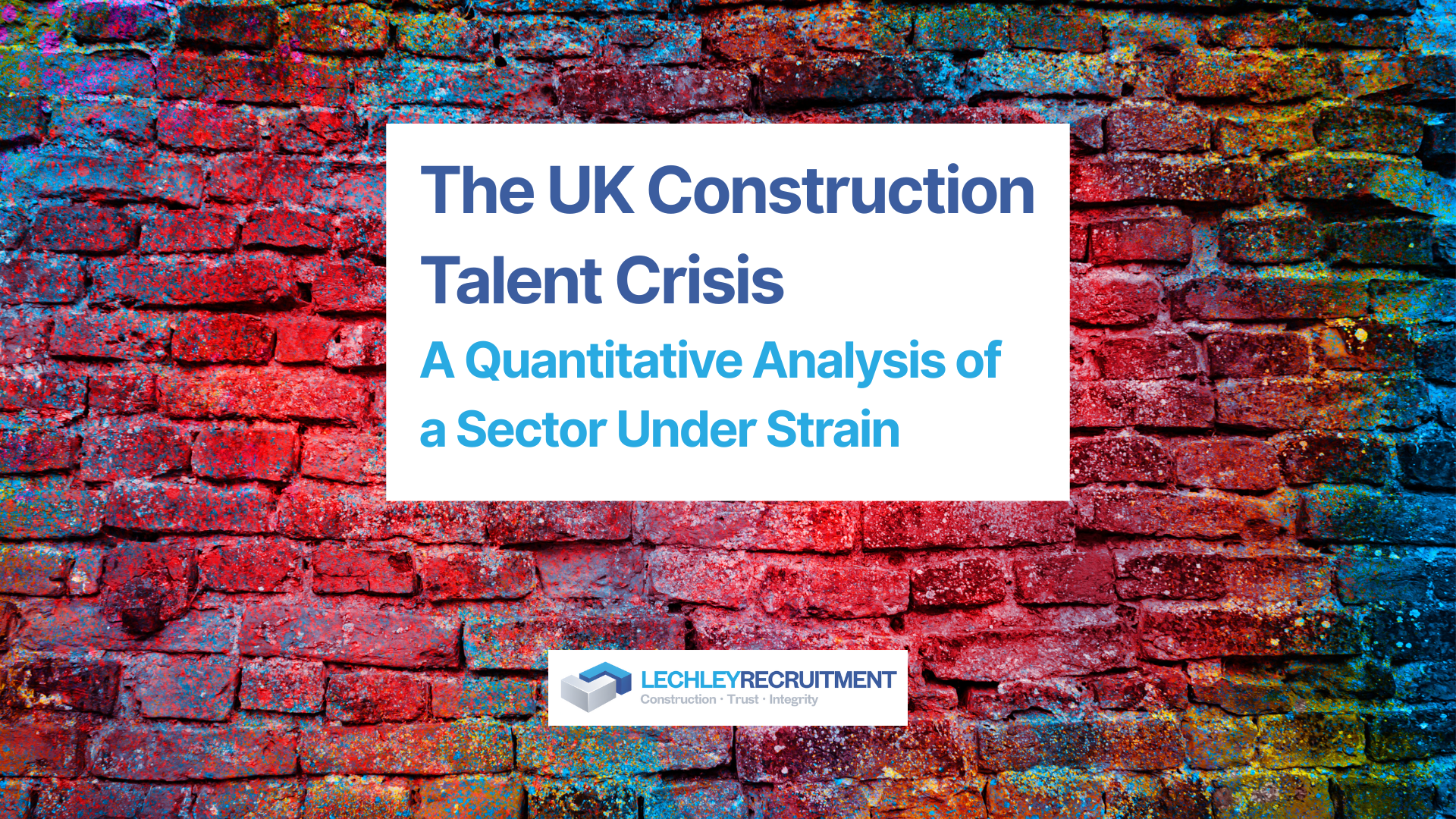Finding the Right Recruiter for Your Business in 2025: A Strategic Guide for the New Recruitment Landscape
Finding the Right Recruiter for Your Business in 2025: A Strategic Guide for the New Recruitment Landscape

The Recruitment Revolution Is Here - Is Your Business Ready?
It's 2025, and the business landscape has transformed dramatically. AI integration, hybrid work models, and talent shortages have entirely reshaped how companies find and secure top talent. If you're still approaching recruitment like it's 2022, you're already three steps behind your competition. But here's the question that keeps many business leaders awake at night: In this new reality, how do you find a recruiter who doesn't just fill positions but strategically positions your company for success?
As a specialised headhunter who's witnessed the evolution of recruitment firsthand, I can tell you that finding the right recruiter in 2025 is less about outsourcing a service and more about forming a critical business partnership. I'll guide you through this new terrain.
Why Traditional Recruitment No Longer Works
The traditional "submit a job order and wait for candidates" model died years ago. Today's recruitment ecosystem operates on predictive talent acquisition, deep network cultivation, and strategic positioning of your employer brand in increasingly fragmented talent marketplaces.
Ask yourself: When was your recruitment process last yielded a candidate who truly transformed your business? If you're struggling to answer, you're not alone.
In 2025, businesses work with recruiters for reasons that go far beyond filling vacancies:
- To gain competitive intelligence on talent movements within your industry
- To access hidden talent pools invisible to automated systems
- To strategically position your company ahead of anticipated skill shortages To build talent pipelines before positions even open.
Do you know if your current recruitment strategy is proactive or purely reactive? The difference will determine whether you're leading your market or constantly playing catch-up.
Identifying the Recruiter Your Business Needs
Step 1: Assess Your Talent Strategy Gaps
Before contacting a single recruiter, conduct an honest assessment of where your current talent acquisition strategy falls short:
- Are you missing specialised technical expertise that's evolving too rapidly for your internal team to track?
- Does your employer brand accurately communicate your value proposition to the 2025 workforce?
- Have you built talent intelligence systems that alert you to market shifts before they impact your hiring?
The specific gaps in your current approach will determine the recruiter you need. What critical hiring challenges have persisted despite your best internal efforts?
Step 2: Specialised vs Generalist Recruiters: The Landscape Has Changed
- In 2025, the distinction between specialised and general recruiters has become more nuanced. Today's elite recruiters offer industry specialisation combined with cross-sector innovation insights.
- The question isn't simply whether you need an industry specialist but rather Whether you need a recruiter who can bring outside innovation into your industry or one who has the deepest possible network within your existing ecosystem.
- A specialised recruiter brings invaluable market intelligence, including competitor compensation structures, emerging skill trends, and talent migration patterns specific to your field. They can tell you not just who's available now but who will be available in six months when a competitor's major project concludes.
Step 3: Subscription Partnerships vs. Transaction-Based Recruitment
The old contingency/retainer dichotomy has evolved into a more sophisticated spectrum of partnership models. By 2025, the most effective recruiters will operate on talent partnership subscriptions that include:
- Quarterly talent market analysis
- Competitor hiring pattern alerts
- Proactive pipeline building for anticipated needs
- Employer brand positioning in specialised communities
The transaction-based model continues its decline, with leading companies recognising that on-demand recruitment yields diminishing returns in fast-moving markets.
Have you calculated the cost of delayed hires or poor fits beyond the recruitment fee? When factoring in lost productivity, missed opportunities, and team disruption, the actual cost often justifies a more strategic, ongoing investment in recruitment partnerships.
Finding Elite Recruiters in the 2025 Ecosystem
Leveraging Your Network With Strategic Questions
Your professional network remains valuable, but the questions you ask have changed. Instead of simply asking,
- "Do you know a good recruiter?", try:
- "Which recruiter has provided you with market insights that changed your hiring strategy?"
- "Who has successfully found candidates with emerging skills before those skills became mainstream requirements?"
- "Which recruitment partner continued to deliver value between active hiring periods?"
What unexpected business insights have your current recruiter shared recently that weren't directly related to an active search? If none come to mind, you're working with a transactional provider, not a strategic partner.
Evaluating Digital Presence With a Critical Eye
In 2025, a recruiter's digital footprint reveals their actual expertise. Look beyond basic LinkedIn profiles to assess:
- Their participation in specialised talent communities
- Published insights on emerging workforce trends
- Evidence of relationship cultivation, not just transaction announcements
- Demonstration of technological literacy in recruitment tools and platforms
Does their content primarily celebrate placements, or does it demonstrate deep thinking about the evolving challenges in your industry?
The AI Integration Question
By 2025, all recruiters use artificial intelligence tools, but elite recruiters will use them differently. Ask potential recruiting partners:
- "How do you balance AI-driven sourcing with human relationship development?"
- "What proprietary data sets inform your AI models beyond what's publicly available?"
- "How do you validate AI-identified patterns with human expertise?"
Has a recruiter ever shared how they precisely customised their technology approach for your industry's unique challenges?
Red Flags in the 2025 Recruitment Landscape
The recruitment industry has evolved, but sure warning signs have become more pronounced:
- Recruiters who speak in generalities about "talent shortages" without specific market data
- Those who haven't developed specialised expertise in remote/hybrid team building
- Firms that can't articulate how they're addressing algorithmic bias in their tools Recruiters without established relationships in emerging talent communities
Perhaps most importantly, Be wary of any recruiter who cannot demonstrate how they've helped clients navigate workforce transitions during economic uncertainty.
The True Value Proposition: Beyond Filling Positions
The most valuable recruiters in 2025 don't just deliver candidates; they deliver transformation:
- Market intelligence that informs your broader business strategy
- Talent forecasting that aligns with your product roadmap
- Competitor insights that inform your retention strategies
- Employer brand positioning that reduces time-to-hire and cost-per-hire
When was the last time your recruiter proactively contacted you about a market shift that would affect your hiring plans six months from now?
A Partnership Approach for 2025 and Beyond
Finding a recruiter in 2025 isn't just about outsourcing a function; it's about gaining a strategic advantage in an environment where talent acquisition directly impacts market position.
Ask yourself these critical questions:
- Do you know if your current recruitment approach is reactive or predictive?
- Are you making talent decisions based on real-time market intelligence or outdated assumptions?
- Does your recruiter bring you solutions you haven't thought to ask for?
- Are you leveraging recruitment as a competitive intelligence function?
The most successful businesses in 2025 will not just have recruitment partners; they will have talent intelligence partnerships that transform how they build their organisations.
Taking the Next Step: From Reading to Action
- If this article has raised more questions than answers about your current recruitment strategy, that's by design. The recruitment landscape of 2025 demands a more sophisticated approach than ever before.
- I've guided numerous organisations through this shifting terrain, helping them build recruitment partnerships that deliver both candidates and competitive advantage. The businesses that thrive in today's environment recognise recruitment as a strategic function, not an administrative one.
- Are you ready to transform how your business approaches talent acquisition? I welcome the opportunity to discuss your specific challenges and how a strategic recruitment partnership might address them.
- Please contact me directly to continue the conversation about how your business can stay ahead in the talent race of 2025 and beyond.
- Scott Lechley is a specialised headhunter and talent strategy consultant with over two decades of experience in strategic recruitment partnerships. He can be reached at 07973 460391 for personalised insights into your talent acquisition challenges.





